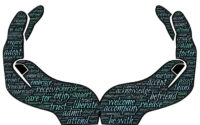Optimism is more than thinking positive. It is not about persistently using positive affirmations and expecting events will be in your favour. It is not just about focussing on positive thinking and avoiding negative sentiments since there is place for healthy scepticism.
I don’t believe in defining what optimism is because you’ll then land up with just one interpretation. I will, however, offer a realistic paradigm and i.e. more often than not, things will eventually turn out alright and if it does not, there are reasons you can find to benefit from the initial setback. Optimists set out believing that they will accomplish what they set out to be/do/have and if the tides change against them, there is a voice that keeps them tuned in to the lessons and gifts when the going gets rough. Optimism is about identifying and manifesting positive outcomes from seemingly difficult ones. And one way to practice this is through reframing.
A reframe involves looking at an incident from a different set of lenses with positive possibilities. There could be negative reframes and positive reframes. Most adults struggle with using positive reframes because they might have gotten used to listening to their own self-criticism resulting in lower self-esteem, self-concept and self-confidence.
Reframing is changing the way you perceive an event and so changing the meaning. When the meaning changes, the response and behaviour also changes. An analogy is that of framing a picture. If you have a painting of Mona Lisa but choose to frame a tiny portion of the background only, you cannot call it a painting of Mona Lisa anymore. A painting of Mona Lisa will also look different when framed in gold as opposed to cheap wood. See how framing (giving meaning to) a picture (content/context) changes its meaning?
Moving From Pessimism to Optimism During a Time of Adversity
Let’s look at an example in the entertainment industry and how to reframe.
Example, during an event, a table of 10 have had too much to drink. They are misbehaving and drowning your voice, disrupting your train of thought and being a total nuisance. The room is getting out of control and people are looking at you to do something.
Try asking these 4 questions:
1. In what way was this incident a blessing?
a) Am finally exposed to a scenario that I will have better control in future if it happens.
b) A new challenge has expanding my repertoire of skills
c) When it happens again, I will know exactly what to do.
2. What lesson did I learn that I can use if I face something like this again?
a) What assistance can I get from organizers in future occurrences?
b) Pick the brain of other experienced emcees
c) Ask yourself, “Have I misbehaved before with or without alcohol?”
d) Are they misbehaving because of me or have they gone out of control because of alcohol?
e) Can I devise a pattern interrupt (a moment of attention towards them for a minute that is humorous and light- hearted)
f) Start thinking and asking about other unforeseen moments.
3. What would I not have learned if this did not happen?
a) Handling people who have lost some of their sanity momentarily.
b) Handling situations which were not anticipated.
c) Calming my own nerves and realizing that my emotions help me be more alert and sensitized. It’s not that I am losing it but it’s a direct consequence of my body telling my mind that something must be done.
4. What aspects of this situation can I change, influence, or control if something like this happens again?
You can’t control what has already happened. You can influence what could potentially happen and you can have full control of what happens when you are clearly in the know and experienced. Hence, if something has gone wrong, look to the future and strive to always be better. The least you can extract from an unforeseen incident is wisdom for the future. It teaches us lessons for life. The biggest of names… From Abraham Lincoln, Thomas Edison and Jack Ma frequently talked of failure as necessary steps that made them unforgettable success stories. They experienced mammoth obstacles in the form of mistakes and rejection and considered them necessary steps towards unparalleled success.







